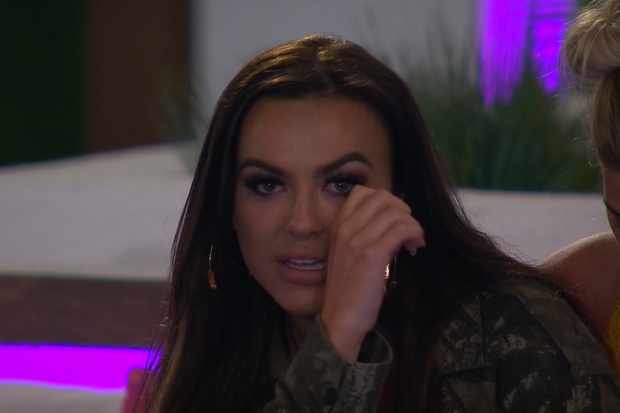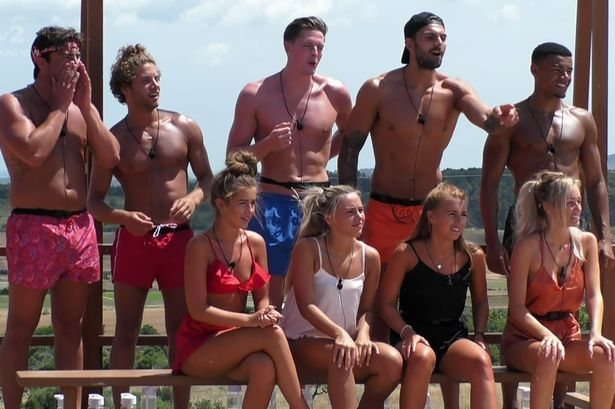
Love Island is a game show which manipulates its contestants’ emotions and actions to provide entertainment to the masses… and it works! With over 3.4 million viewers for this series’ premiere alone, we’re all watching it.
https://twitter.com/ellzthelephant/status/880139341833568256
But as we reach the final week of the hit reality tv series, it’s time we look at how the show promotes toxic relationships to its viewers and how we should try not to reflect the show’s morals in our personal lives. As drama unfolds in the villa, viewers share their opinions, outrage and support for the islanders on social media. From the episodes where Adam manipulated girl after girl, to the birth of Muggy Megan, Georgia’s questionable loyalty, and as we await who’s next to get pied off, every viewer is eager to have a say in the action.
UMMMMMMM RECAP ON MS LOYAL "I have cheated but I haven't been in a serious relationship so it doesn't count" BUT YOU AND JOSH WEREN'T SERIOUS nah I'm done Georgia is actually finished #LoveIsland pic.twitter.com/rt2F6jFnCM
— Tinkerbell👸🏽🇬🇾 (@7omomacceb) July 16, 2018
Personal relationships and emotions are analysed and dissected by a nation. It’s addictive to watch – but the islanders are not on their best behaviour.

GASLIGHTING
One of the most problematic scenes which ITV created for our enjoyment centred around the cruelty of the islander Adam Collard. The Geordie personal trainer/cruel casanova treated fellow islander Rosie Williams, recent law school graduate/victim, in such a problematic way that ITV was called out by Women’s Aid for presenting an explicit example of gaslighting; a form of abuse where an individual makes another feel that they are ‘crazy’ through emotional manipulation.
We were shown Adam gaslighting Rosie in an intense five-minute edited snippet of a three-hour long conversation. Although much of what is actually said is edited out to create an exciting performance and a ‘viewable reality’, it is that viewable reality that we were fed and that ‘reality’ which normalises emotional abuse such as gaslighting.
BINARY
And let’s not forget another huge problem; the show is binary. On the ‘island’, girls like guys and guys like girls. There are no different sexualities, and this dramatically contrasts with the amount of variations of sexual expressions there are in real life.
Why on Earth are we focusing on Steph and Laura’s convo when the boys are doing what looks like synchronised diving into the pool #loveisland
— Chloe Dunk (@_ChloeADixon_) July 19, 2018
This definitive ‘hetero-ness’ can lead to viewers assuming a lot about a person’s sexuality in the outside world. From watching such a hetero-focused environment, this can lead to a person who is gay, bi, or asexual feeling very trapped as we revert to girls talking about who they think the fittest guys are and vice versa.
DIVERSITY
The intense focus on the girls feeling the need to appear physically and ‘objectively’ attractive is yet another downfall of the show that was highlighted in the episode where only the boys had to take a lie detector test (interesting how we are still focusing on the headspace of a man instead of allowing the girls to take one as well).

All the girls, without fail, asked their partners a question about how physically attractive they were in front of a nation thirsty for drama.
https://twitter.com/LaurenxSinclair/status/1021138574174031873
It seemed that all the girls needed to feel secure in their relationship by asserting themselves as visually pleasing to the male gaze. Remind me again, what have women been oppressed by and fought against throughout history? Glad to see ITV normalising this toxicity on ‘Britain’s most watched TV show’.

We begin to lose sight of the whole foundation that Love Island stands upon; the show is a game. A game for the contestants to win £50,000. It shouldn’t be a representation of what is best for our lives and it’s important that we don’t get lost in the drama and begin to judge our own lives according to Love Island’s standards (or lack thereof). From the get go, the islanders are up against one another in a competition to find ‘love’ or a seemingly realistic ‘showmance’ that will allow them to win the cash prize. On this show, the incentive for a couple is to appear ‘in love’ to the public to win money and so shouldn’t be a model for relationships and behaviour in the real world. So grab your popcorn, enjoy the show, but remember; it’s all a game.
Words by Hannah Brown

